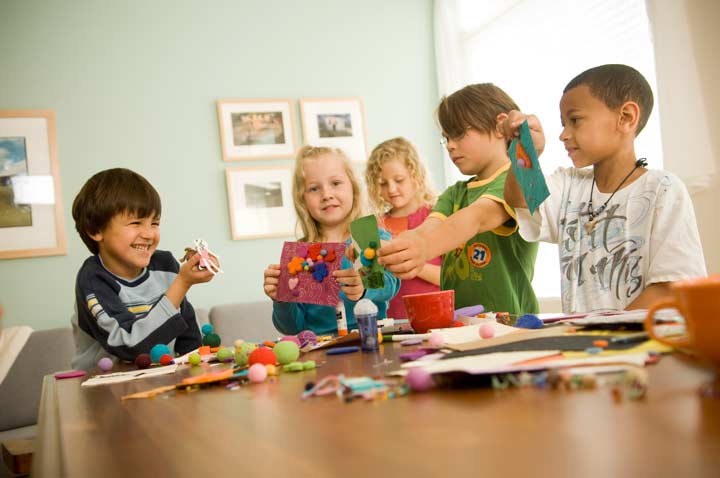
Making art is probably the most terrifying thing you will ever do. Truly. If I had a choice between walking straight into the mouth of a fire breathing dragon who had just eaten a village of garlic farmers or facing the blank page, I would put on my boots, kiss my husband goodbye, and walk towards the fetid stench.
Fortunately, I have friends. Writer friends. Artist friends. Creative friends. And that has made making art infinitely easier and more fun. We support one another, advise one another, offer one another hope, encouragement and good advice.
Also, we meet for lunch! I’m pretty sure we are keeping the coffee industry alive. I know we are making half of the waiters in L.A. glare at us for how long we stay at tables buying nothing and sobbing into our napkins Wednesday afternoons.
Having creative friends is deadly important in a creative career. Why you ask? Why not work at it alone; develop an air of mystery and a heightened sense of your own importance? Don’t all the great artists work alone in alienation and despair, suffering over their Tuesday taco platters and writing about the fear and trembling of being without friends?
They do. But then they show their work to their friends and get dessert.
The most despairing work is usually done at a friend’s house. The Wasteland for example, which is all about the brilliance of despair and dejection and the futility of modern society may have been written by T.S. Eliot, but it was edited by Ezra Pound. If you are going to write about isolation, find someone else who feels the same way and share it! You’ll both have something to read, someone to give feedback and someone else’s credit card to pay for the champagne when it wins a Pulitzer and you’re too famous to have regular friends anymore.
In college my best friend and I would go through periodic episodes of teenage angst and melancholy. She would turn to me and say, “Let’s pull out our mattresses, get into our pajamas, and eat ice cream in the middle of the living room until we rupture our stomachs and die.” To which I would reply, “I’ll get the spoons.” When I think of that, I think of how important it is to have friends in life in general, and especially how good it is to have friends on the artist’s journey.
To begin with, friends can help you set schedules. Can give you honest feedback. Can set you a good example. Can meet you for lunch!
There’s no time when I realize the importance of my artistic friendships than when I complete a writing class. During the class, I have structure, feedback, direction, and a sense of accountability and support. I am productive and happy. Or I am productive and miserable. Either way I am productive. And after eight or so weeks, I have something to show for all of the time I’ve spent yelling at the keyboard, breaking pencils and dishes and chortling to the cats.
Then, it happens. Writing class ends.
Within a day or a week I find myself antsy, itching, waking up in cold sweats wondering what I am going to do with my day. The idea of facing my own mind feels overwhelming. I start looking at my laptop and realizing I have 300 unfinished poems, a list of impossible projects, and a strange feeling in my stomach that may be the flu or the growing knot of anxiety. I start avoiding my work and cleaning out the cabinets instead. I throw out half of my books and then buy them back at a loss from the used bookstore.
I write things and have no idea if they make any sense. I feel perpetually like I am screaming alone into a void that has no ears on the edge of the abyss. That my writing is futile. That I am a fly at the bottom of a used bottle of tequila after the party has gone.
At this time, I usually reach out to a friend. I call someone who I know is in a similar situation and say, “Do you want to get lunch?” or, “Do you want to trade rough drafts and give each other feedback?” While this isn’t as structured as a writing class or a full time teaching schedule, it provides enough accountability to keep me going. I show somebody something I am working on and they say, “Great” or, if we know each other really well, “Terrible,” or, if they are diplomatic, “This has potential.”
They give me direction and a sense of solidarity. I look at their work and realize I am not the only person taking the plunge with the pen. I am not alone.